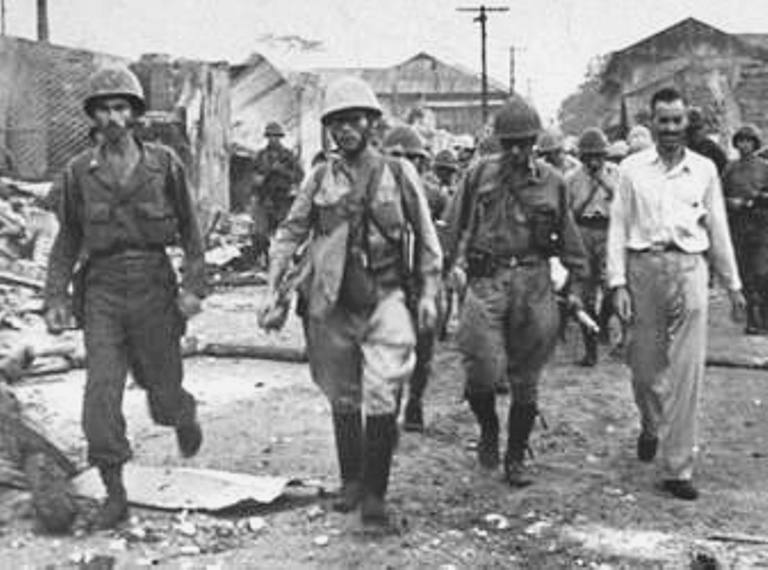Rupert Wilkinson lived with his mother and sister in Manila during the 1942 period of Japanese invasion. With their father away at war as a British liaison, they were on their own when the Japanese stormed in and took them hostage to an internment camp, where they were to find themselves staying for the next three years.
According to Wilkinson, his family was relatively left alone due to his mother Lorna’s illness when captured, as the Japanese had recently experienced an outbreak of tuberculosis. The Wilkinsons were put under open arrest, meaning that they lived outside for their first year where they were able to receive food from neutral parties outside of the camp, the History Extra.com reports.
This changed, however, in 1944. As the Japanese were suffering heavy losses in the war, so the hostages were doomed to suffer as well. The gates of the camp were sealed off, and not only could no one bring food in anymore, but camp rations began to dwindle as well. The rate of hostage deaths in the camp began to rise as rations lowered. With the camp being gender-divided by the Japanese, Rupert was not able to live in the same dorm as his mother or his older sister, Mary June.
Rupert’s family handled the ordeal well. His sister relied on religious faith to get her through the harder times, and his mother was more worried about her children than anything else. While Mary June missed her father, Rupert claims that he was resourceful and found activities to occupy his time, as did the other children. Their father actually did try to get them realized, but looking back Rupert realizes that this would not have been the best option. His best friend Nick was hostage at the camp as well, and he would rather have been with Nick than with strangers at a British boarding school. The only somewhat traumatizing experience was when he witnessed three men who had tried to escape get capture, beaten, and then shot into pre-dug graves.
Most of the hostages were liberated by the Japanese in February of 1945, although Rupert was there for an extra couple of days while the Japanese tried to plot an escape from incoming Allied forces. Rupert was in the camp when the Allies arrived. Tanks rolled up and the Japanese garrison used the hostages as leverage. Rupert and his friend Nick had to sleep under the beds, now occupied by soldiers trying to escape machine gun fire from the American tanks below. Finally, a negotiation was made to escort the garrison out, and the internees saw liberation.
Rupert does not hold his experiences against the Japanese as a people, seeing his captors as victims of the same war. He cites the war’s brutality as the major offender in his memory of being a hostage, not the brutality of the camp itself. Having now written a book about his three years as an internee, Wilkinson is sharing his experience, strength, and hope for a better world with anyone who seeks to read about his life.
